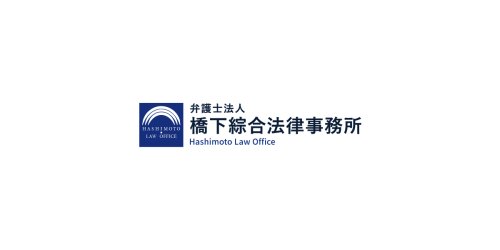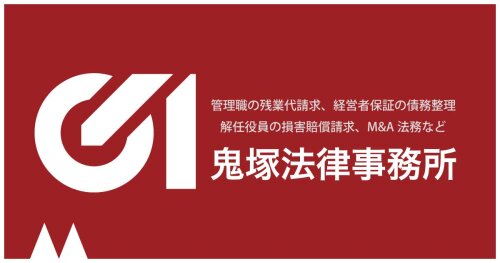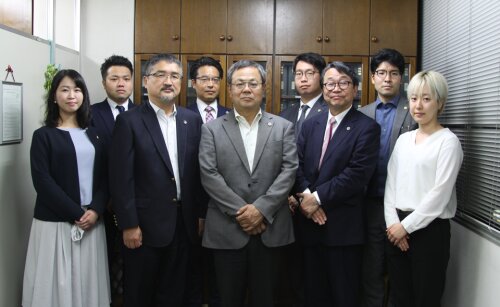Best Employment & Labor Lawyers in Japan
Share your needs with us, get contacted by law firms.
Free. Takes 2 min.
Or refine your search by selecting a city:
List of the best lawyers in Japan
About Employment & Labor Law in Japan
Employment and labor law in Japan encompasses a wide range of legal standards and regulations designed to protect the rights and responsibilities of employees and employers. The foundation of employment law in Japan is built on a series of laws and regulations, such as the Labor Standards Act, the Labor Contracts Act, and the Employment Security Act. These laws ensure fair treatment, safe working conditions, and proper dispute resolution mechanisms in employment relationships. Understanding these laws is crucial for both employees and employers to maintain harmonious workplace environments and comply with legal obligations.
Why You May Need a Lawyer
There are several common situations where individuals may require legal assistance in employment and labor matters:
- Workplace Discrimination: If you're facing discrimination based on race, gender, age, or other personal attributes, legal intervention may be necessary.
- Unfair Dismissal: Termination without just cause or in violation of statutory procedures may require a lawyer to negotiate or litigate for a fair outcome.
- Harassment Cases: Addressing issues related to bullying or sexual harassment at work often requires legal advice to ensure proper reporting and resolution.
- Wage and Hour Disputes: If your employer is not complying with minimum wage laws or overtime regulations, legal help can aid in recovering unpaid wages.
- Contract Disputes: Issues such as non-compete clauses, ambiguous terms, or contract violations may necessitate legal interpretation and action.
- Disability and Accessibility Issues: Ensuring workplace accommodations and fair treatment under disability laws often requires legal guidance.
Consulting with a lawyer can provide clarity, ensure your rights are protected, and help navigate complex legal proceedings.
Local Laws Overview
Japan’s employment and labor laws are designed to protect workers and ensure fair treatment by employers. Some key aspects include:
- Labor Standards Act: Establishes minimum standards for working conditions, including working hours, holidays, and safety.
- Employment Contracts: Governed by the Labor Contracts Act, require clarity in terms of employment conditions and mutual consent.
- Equal Opportunity: Laws prohibit discrimination based on gender, and the Equal Employment Opportunity Act promotes gender equality in workplaces.
- Harassment Prevention: Employers are mandated to take preventative measures against workplace harassment, including sexual and power harassment.
- Working Hours: Maximum working hours and overtime pay are regulated, ensuring employees are not overworked.
- Dismissal Protections: There are strict regulations regarding termination, requiring a valid reason and adherence to proper procedures.
Understanding these laws can help parties avoid conflicts and facilitate prompt resolution of disputes.
Frequently Asked Questions
What is the legal maximum working hours in Japan?
The legal maximum is 40 hours per week and 8 hours per day, with any work beyond these hours requiring overtime pay.
How does the Labor Standards Act protect employees?
The Labor Standards Act protects employees by establishing minimum standards for working conditions such as pay, hours, and workplace safety.
Can my employer terminate my contract without notice?
Generally, no. Employers must provide at least 30 days' notice or pay in lieu unless dismissal is due to gross misconduct or other serious reasons.
What are my rights concerning maternity leave?
Employees are entitled to maternity leave for six weeks before and eight weeks after childbirth, as well as parental leave until the child is one year old.
What should I do if I'm being harassed at work?
Document the harassment, report it to your HR department or management, and consider seeking legal advice to better understand your options.
How do I know if I'm being paid fairly?
Ensure compliance with the Minimum Wage Act, and compare your pay and benefits with industry standards in Japan.
Are non-compete clauses enforceable in Japan?
Non-compete clauses are enforceable if deemed reasonable in terms of geographic scope, duration, and the nature of restricted activities.
Are there laws specific to foreign workers?
The same labor laws generally apply, but foreign workers must also comply with specific immigration regulations like obtaining proper work visas.
What is the role of unions in Japan?
Unions represent workers’ interests to employers, and workers have the right to collectively bargain for better terms and work conditions.
How is overtime pay calculated?
Overtime pay is calculated at a rate of 125% for standard overtime, and higher rates may apply for weekend, holiday, or late-night work.
Additional Resources
For further assistance, here are some resources and organizations you can consult:
- Ministry of Health, Labour and Welfare: Provides information on labor standards, employment policies, and workers' rights.
- Japan Labor Review: Offers detailed analysis and articles on labor issues and trends in Japan.
- Local Bar Associations: Can help find qualified employment law attorneys in your area.
- Japan Institute for Labour Policy and Training: Conducts research and provides training related to labor policies.
- Tokyo Employment Service Center for Foreigners: Assists foreign workers with employment queries and issues.
Next Steps
If you need legal assistance in employment and labor matters, consider taking the following steps:
- Identify Your Issue: Clearly understand and document your employment-related issue.
- Consult Relevant Resources: Use resources and organizations to gather information about your rights and obligations.
- Seek Legal Advice: Contact an attorney specializing in employment law to discuss your situation and explore your options.
- Engage in Resolution: Be prepared to communicate with your employer or negotiate with the help of your lawyer.
- Consider Legal Action: If necessary, your lawyer can help you file claims or lawsuits in accordance with Japanese law.
Taking these steps can help you better understand and protect your rights in the workplace.
Lawzana helps you find the best lawyers and law firms in Japan through a curated and pre-screened list of qualified legal professionals. Our platform offers rankings and detailed profiles of attorneys and law firms, allowing you to compare based on practice areas, including Employment & Labor, experience, and client feedback.
Each profile includes a description of the firm's areas of practice, client reviews, team members and partners, year of establishment, spoken languages, office locations, contact information, social media presence, and any published articles or resources. Most firms on our platform speak English and are experienced in both local and international legal matters.
Get a quote from top-rated law firms in Japan — quickly, securely, and without unnecessary hassle.
Disclaimer:
The information provided on this page is for general informational purposes only and does not constitute legal advice. While we strive to ensure the accuracy and relevance of the content, legal information may change over time, and interpretations of the law can vary. You should always consult with a qualified legal professional for advice specific to your situation.
We disclaim all liability for actions taken or not taken based on the content of this page. If you believe any information is incorrect or outdated, please contact us, and we will review and update it where appropriate.
Browse employment & labor law firms by service in Japan
Japan Attorneys in related practice areas.
Browse employment & labor law firms by city in Japan
Refine your search by selecting a city.
















